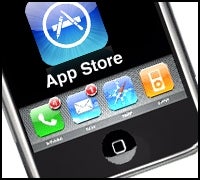 |
Apple relaxed its iron grip on technical details related to the iPhone by scaling back the scope of the Non-Disclosure Agreement (NDA) its developers are required to sign.
In a post at its developer site, Apple (NASDAQ: AAPL) said the NDA would now apply only to iPhone software Apple hasn’t publicly or commercially released on the App Store.
The agreement had infuriated developers because it restricted their ability to freely share information on, among other things, why their application might have been declined for distribution on the App Store. It was also unclear, until now, whether Apple would allow third-party developer events to go unchallenged, as the NDA also restricted registered iPhone developers from discussing the technical details of their software.
In addition to continued criticism of the policy by developers, the change of heart also followed last week’s closely watched debut of the Google-backed, open source Android platform, which powers T-Mobile’s upcoming G1 smartphone.
Apple did not respond to a request for further comment by press time.
Industry analyst Maribel Lopez thinks the timing of Apple’s NDA switch and the appearance of the first Android phone are more than coincidental.
“There were thousands of developers at the Google developer event, and they have good momentum … The Google phones might have a different set of developers now, but Apple has to be worried about protecting itself.”
In its statement, Apple (NASDAQ: AAPL) defended the earlier policy as designed to protect its designs “so that others don’t steal our work. It has happened before.”
Noting it has hundreds of patents on iPhone technology, the Apple statement also said the NDA had sought to add another level of protection. “We put it in place as one more way to help protect the iPhone from being ripped off by others,” Apple said.
Whether they’re rip-offs or not, there certainly have been a number of touchscreen mobile devices released that mimic at least some of the iPhone’s user interface features. Most recently, that list includes the G1 from T-Mobile.
The G1 is the first in what’s expected to be many devices based on the open source Android software, which was developed in large part by Google and managed by the Open Handset Alliance it leads.
“I think there is going to be aggressive recruiting of developers, and it’s going to get competitive for both platforms,” Lopez, CEO and founder of Lopez Research, told InternetNews.com. “There is always going to be a level of onerousness to Apple’s terms, but I think [Apple officials] realize they have to keep it as minimal as possible to not lose the developer momentum they have for the iPhone.”
Apple conceded as much in its statement, noting the past policy “created too much of a burden on developers, authors and others interested in helping further the iPhone’s success.”
The company added that, within the next week, it plans to send iPhone developers a new NDA agreement that will cover only restrictions on unreleased software.
Although developer boards and tech gossip sites have been littered with pointed, if not angry criticisms of Apple’s NDA policy, the company ignored the vitriol in its statement that ended only with the comment: “Thanks to everyone who provided us constructive feedback on this matter.”


